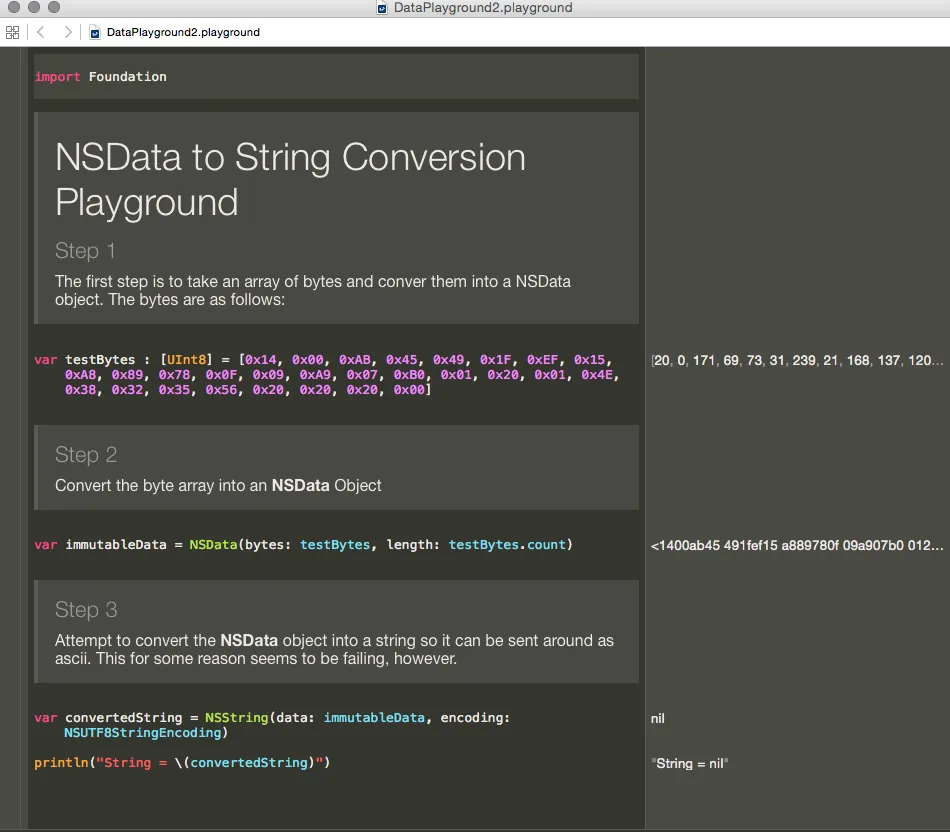我在Swift中将NSData转换成NSString时遇到了问题。我使用的是我认为正确的命令和格式:
我附上了playground代码和屏幕截图。
NSString(data: , encoding: ),但无论我做什么都会得到一个空值。我正在运行最新的Xcode beta,所以我不确定是否相关,但我希望这只是一个简单易错的错误。我附上了playground代码和屏幕截图。
Xcode 6.3 Beta 2 Build(6D532l)Playground Code
import Foundation
//: # NSData to String Conversion Playground
//: ### Step 1
//: The first step is to take an array of bytes and conver them into a NSData object. The bytes are as follows:
var testBytes : [UInt8] = [0x14, 0x00, 0xAB, 0x45, 0x49, 0x1F, 0xEF, 0x15, 0xA8, 0x89, 0x78, 0x0F, 0x09, 0xA9, 0x07, 0xB0, 0x01, 0x20, 0x01, 0x4E, 0x38, 0x32, 0x35, 0x56, 0x20, 0x20, 0x20, 0x00]
//: ### Step 2
//: Convert the byte array into an **NSData** Object
var immutableData = NSData(bytes: testBytes, length: testBytes.count)
//: ### Step 3
//: Attempt to convert the **NSData** object into a string so it can be sent around as ascii. This for some reason seems to be failing, however.
var convertedString = NSString(data: immutableData, encoding: NSUTF8StringEncoding)
println("String = \(convertedString)")
Playground的结果

var testBytes: [UInt8] = [0x68, 0x65, 0x6c, 0x6c, 0x6f]. - qwerty_so